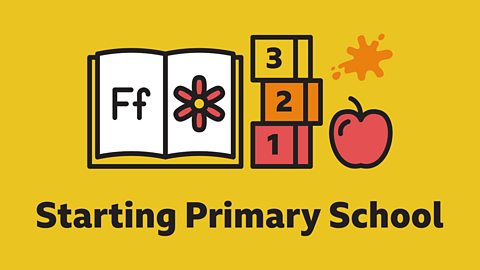by Anjali Patel, Early Years and Primary Advisory Teacher
Supporting your childтАЩs early learning at home can make a huge contribution to their language development and their success as emerging readers and writers. But what kinds of things can we do in the home learning environment to give our young children the very best start at school?
Talking

Make time to talk about anything and everything with your child. Your commentary on the world will help them understand it and develop their vocabulary. Here are some tips:
1. Try to introduce new words in context. For example, if you are watching a spider on a tree you could use the word тАШtinyтАЩ instead of тАШsmallтАЩ and introduce vocabulary like bark or scuttle. This will help your child to really understand the meanings of new words.
2. Encourage your child to ask questions and ask questions yourself that you might not know the answer to (e.g. what are clouds made of?) - you can then find out the answers together and you will be modelling тАШinformation retrievalтАЩ.
3. Talk about and share personal stories in different ways. You could decorate a shoe box and fill it with special objects that remind children of special people, places or occasions. This will help your child develop storytelling language that they will be using at school, as well as strengthening their special bond with you.
4. When you are watching television together, talk about what you are watching. Discuss characters and storylines in cartoons or talk about documentaries together. And you could bring familiar storylines from favourite books and television programmes to life using toy figures, dolls, puppets or soft toys.
5. Talk to children about stories, poems or rhymes you are reading together and how they make them feel. Discuss the characters, settings and storylines, talk about favourite moments or parts of the book they didnтАЩt enjoy. Encourage them to make links with other things they have read or seen, or to their own personal experiences. Can they remember a time they have felt like the character? Have you ever been somewhere like the place where the story was set?
Listening
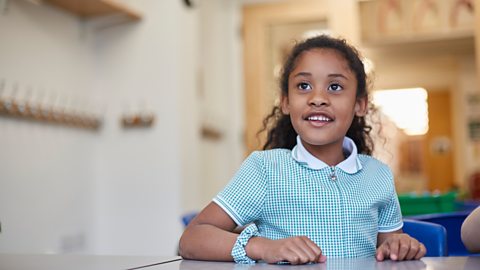
6. There will be a lot of listening and group learning at school and you can help children to prepare for this at home. Engage in conversation with your child as much as possible, showing them how to take turns speaking and maintaining eye contact to show them how to listen attentively.
7. Encourage children to listen to rhymes, poems and songs. Nursery rhymes and simple songs are childrenтАЩs first experience of story structures, introducing characters and simple plots that they can recall readily, so share these with young children on a daily basis. Include family favourites as well as classics.
8. Children will be introduced to the sounds in the English Language at school. We call these тАШphonemesтАЩ. In readiness for this, talk to them about all sorts of sounds they hear in the environment. How are they the same? How are they different? Can you make that sound? Of what does it remind us?
9. Encourage children to listen out for rhyme, alliteration (when words start with the same sound) and repetition. Clap along with beats and rhythms and encourage children to move rhythmically to music. All these skills will help children to be ready for learning phonics at school.
Writing
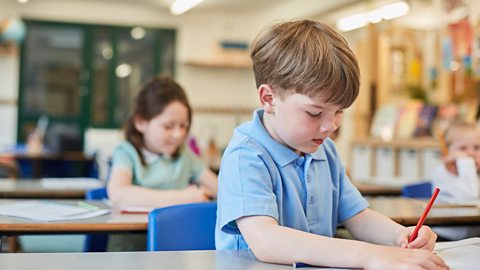
10. Drawing, painting, and playing with modelling clay are all important steps towards writing. This helps children develop the muscles they need for a strong pencil grip whilst they are also exercising their imaginations.
11. Children love to тАШplayтАЩ at writing and encouraging them to write as much as possible тАУ even though you might not be able to read what they have written тАУ helps them to think of themselves as a writer. So, have paper, pens and notebooks at home and encourage children to use these to write for different purposes. Try to keep it as a way of relaxing and creating; children expressing, communicating and sharing ideas.
12. Show your child when you are using writing to communicate yourself. Leave notes for your child, show them when you are writing cards or labels. Notes are great for sticking around the house or in packed lunches. This helps children to understand the purpose of writing and also lets them see that you value it.
13. Have magnetic letters on the fridge or foam ones in the bath to play with. Make links with simple words children have read with you. You could start with three letter words like d/o/g and as they learn more graphemes at school, progress to words like d/u/ck. How about rhyming words like b/og and tr/uck? Which letters do you keep? What sounds change at the beginning of the word?
Reading
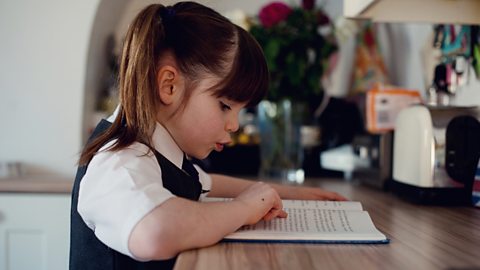
14. Try to show that your home is a reading home. Let your child see you reading - a newspaper, magazine, cookery book, novel, brochure, catalogue - anything!
15. Encourage children to carry a book or comic at all times so they can read on journeys or in spare moments. You can do this, too!
16. Create a bedtime reading routine. Not only does it support your child to wind down at the end of an exhausting school day, but listening to all kinds of books and stories read aloud helps to tune children in to the rhythms of writing. And don't worry if you're not a confident reader, you could try making up stories using the pictures in books.
17. Bring books to life by using your voice in different ways. Create voices for characters, pause for suspense, sing along with rhyming books, use animal sounds like woof, growl and hoot. DonтАЩt be shy - you will be helping them to see reading as a pleasurable activity.
18. Don't worry if your child wants to read or listen to the same book over and over again. This is perfectly normal. It is also very important as it lets young children revisit favourite parts and commit the story to memory. This is all part of learning the language of stories and will come in handy when they are asked to write stories at school.
19. Encourage children to join in with reading for real life purposes; helping you read out recipe instructions as you cook, or a shopping list and labels around the supermarket.
20. Encourage children to take an interest in letters and words around them. This will start with the letters in their name, important words to them like mummy, daddy, teddy, and will expand to other words linked to interests, reading, conversation and other activities. Look out for words that are used a lot in reading and writing. These are called тАШhigh frequency wordsтАЩ and you may be sent a list home from school.
21. Encourage your child to use the sounds letters make to help them read unfamiliar words. At school, these sounds are called тАШphonemesтАЩ and the letters are тАШgraphemesтАЩ. Graphemes can be made up of more than one letter, like тАШaiтАЩ in rain or тАШighтАЩ in light. At school, your child will start breaking down each word into its individual sounds such as c/a/t. At home, you could also break longer words into manageable chunks, like syllables or beats, such as el/e/phant.
22. Identify rhyming pairs of words in nursery rhymes or stories. Show them how to predict or chime in with the rhyme. Point out these rhyming words on the page, like 'Jill' and 'hill' or 'wall' and 'fall'. How are they the same? What is different?
23. Join your local library and visit it together on a regular basis. If your child chooses a book for themselves, they are more likely to finish it. You can also help your child choose a range of books that gives them a broad experience of reading; picture books, non-fiction, poetry and longer stories are an important part of childrenтАЩs reading experience at all ages.
It may be difficult to know where to start with helping your child but if you read to them every night, have fun with words, share conversations as a family and help them to develop a love of reading and writing, you will be providing your child with the strongest foundations for success in language and literacy. ItтАЩs a priceless gift!
Anjali Patel is the Lead Advisory Teacher at the Centre for Literacy in Primary Education (CLPE).
Know someone who has recently started school or will be beginning next September? Check out the rest of which has lots of ways to help prepare children for different aspects of school life тАУ both practically and emotionally.

More from │╔╚╦┬█╠│ Bitesize Parents' ToolkitтАж
Parents' Toolkit
Fun activities, real-life stories, wellbeing support and loads of helpful advice - we're here for you and your child.

Top tips to support your child's reading at home
Language development expert, Tara Parker, suggests some top tips to help you make the most of your child's reading time. From │╔╚╦┬█╠│ Bitesize.
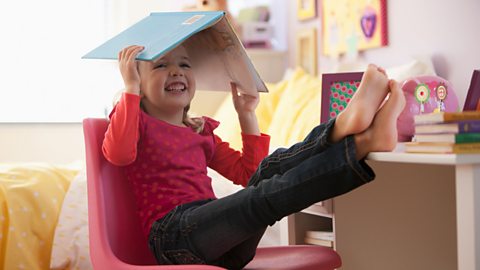
Top tips for reading with your child
Early years specialist, Purnima Tanuku OBE, give her tips to help you get the most out of reading with your child.
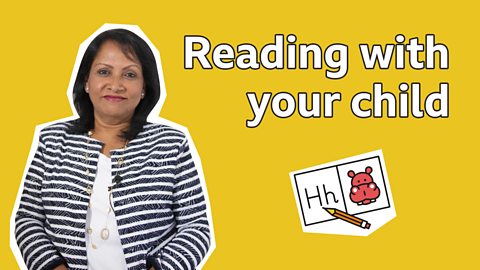
How to support your child's learning at home
Parents Joyty and Inderjit give advice on how you can support your child's learning at home.

How to help your child with language
Primary school teacher Annah gives some top tips for developing your child's language, communication and listening skills.
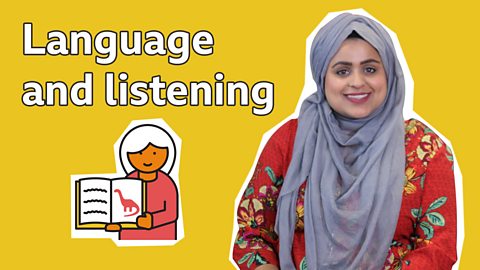
More Starting Primary School videos and articles
Head to our homepage to help you and your child prepare for starting primary school and thrive in school life.
